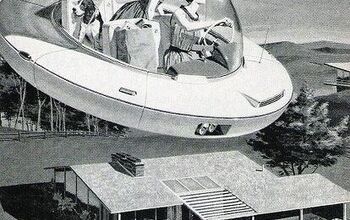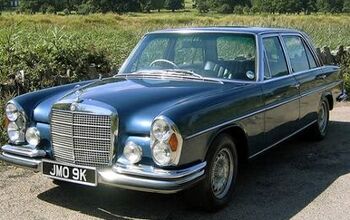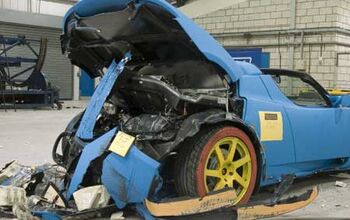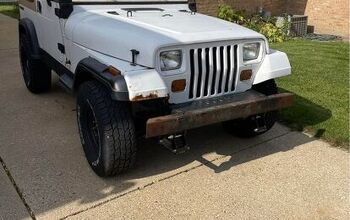Daily Podcast: Startup the Future
Detroit’s Big Three are in serious trouble. That’s not news to anyone. Toyota and Honda, while suffering sales decreases last month, are still in the black. But the big question is where the future of the American automotive industry is – if there is one. Even if the Big Three don’t completely vanish, their continued downsizing will leave boatloads of engineers and mid-level execs without a job. Is the Silicon Valley model of business the future for the automotive industry for the next twenty years? Tesla seemed to raise plenty of dough despite immense production issues. And Carbon Motors is attempting to crank out a custom-built police car. There’s no way tiny companies like these could build enough cars for the entire US population. Nor could they compete with big boys like Toyota. But we might see a boom in purpose-built vehicles coming from smaller companies. Dodge Vipers from whoever buys the program. Electric sports cars from Tesla. An electric sedan from somebody. Carbon Motors’ police cars. Single-purpose taxicabs. And so on. Even after the small companies consolidate, it would be a clean start for the American automotive industry. Is it going to happen? No. But I’m just sayin’.


































Comments
Join the conversation
Geez... what cars DO you like (the look of)!! Besides the Mas GT, Corvette, etc. And I totally agree about keeping cars for a bit longer. :) I am also very pissed since I bought my first brand new car from Toyota like two months before this 0% financing... they gave us 5% for 60 months. HAH!
I made a comment about this maybe a year or more ago (I'm to lazy to search for it). But I think a collapse of Detroit will turn out to be great for the American auto industry. You'll still have Delphi (maybe), Delco, Dana, Plastech, American Axle, and all the other suppliers out there. Rather than them being dependent on the mothership for orders, they'll have to create standardized parts. Then small shops can open up making purpose built cars out of those standard parts. It'd be a lot like the bicycle industry is now. Most bike companies buy components from Shimano (or a few other smaller companies) and put them on their own frames that are purpose built. The same thing could go with cars. This would allow for great flexibility in the market. And if there was one or two components that you needed custom, you could do that and buy standard for everything else.
@RomanJetFighter: Okay, what do I like the look of? Hmm, for a grizzled curmudgeon like me, this is tough. Mostly, I hate everything. But I'll tell you some exceptions. Let's stick to new cars. All the Maseratis, of course. I like the Ferrari 612 (though that's a minority opinion I think) and the Ferrari F430 - though I prefer the 360 Modena. Lexus LS460, IS250/350 Mercedes C-Class Audi A8 MINI Cooper Audi A3 Toyota Camry (yes, really, I think it's an outstanding design for a family car). Pontiac Solstice and Saturn Sky Pontiac G8 Dodge Challenger Ford Mustang Ford Flex Chevy Corvette Porsche Cayman FJ Cruiser Jeep Wrangler Cadillac Escalade Cadillac CTS Range Rover Land Rover Discovery/LR3 European cars not in the US: Fiat 500, new Ford Fiesta. Skoda Octavia, Roomster, and Superb. Fiat Grande Punto, Alfa Romeo 159, Brera, and Spyder.
It does seem likely there will be a "boom" -- rather "boomlet" in purpose-built vehicles. There'll be more automotive start-ups than we've seen in a long time, with perhaps a few succeeding for a while. Success in those cases will be enough sales to get noticed, not necessarily enough to thrive or survive. Let's face it, the real trend underway is that cars are becoming commodities. A few folks who recoil from that blandness will pursue startups, a few more will buys some of the startups' (upstarts') cars, and many more who recoil will chatter about it and pine for vehicles with personality. Toyota seems to have mastered making money in the commodity car market, while also having the foresight to look ahead at the constraints of the 21st century. The Prius, which seems so "special" now, is really just one protogenitor of the kinds of commodity cars it will take for an automaker to profit in years ahead. GM tried commodity cars dressed up through badge engineering -- where they just perhaps way ahead of the time and didn't know it?